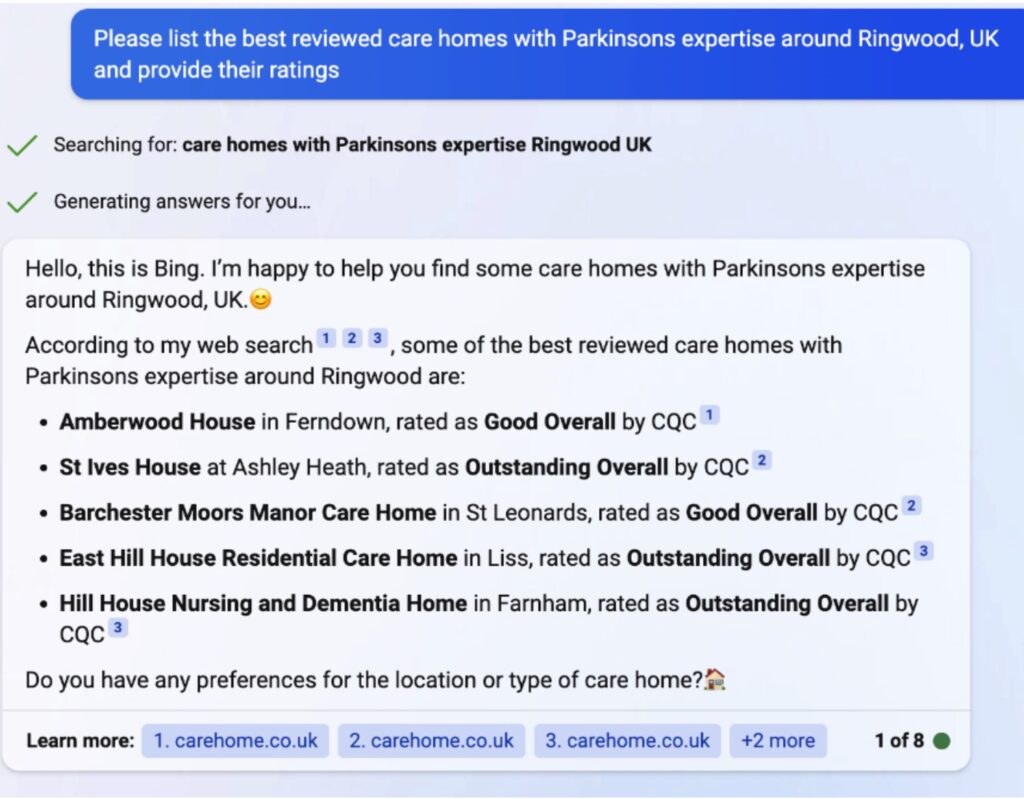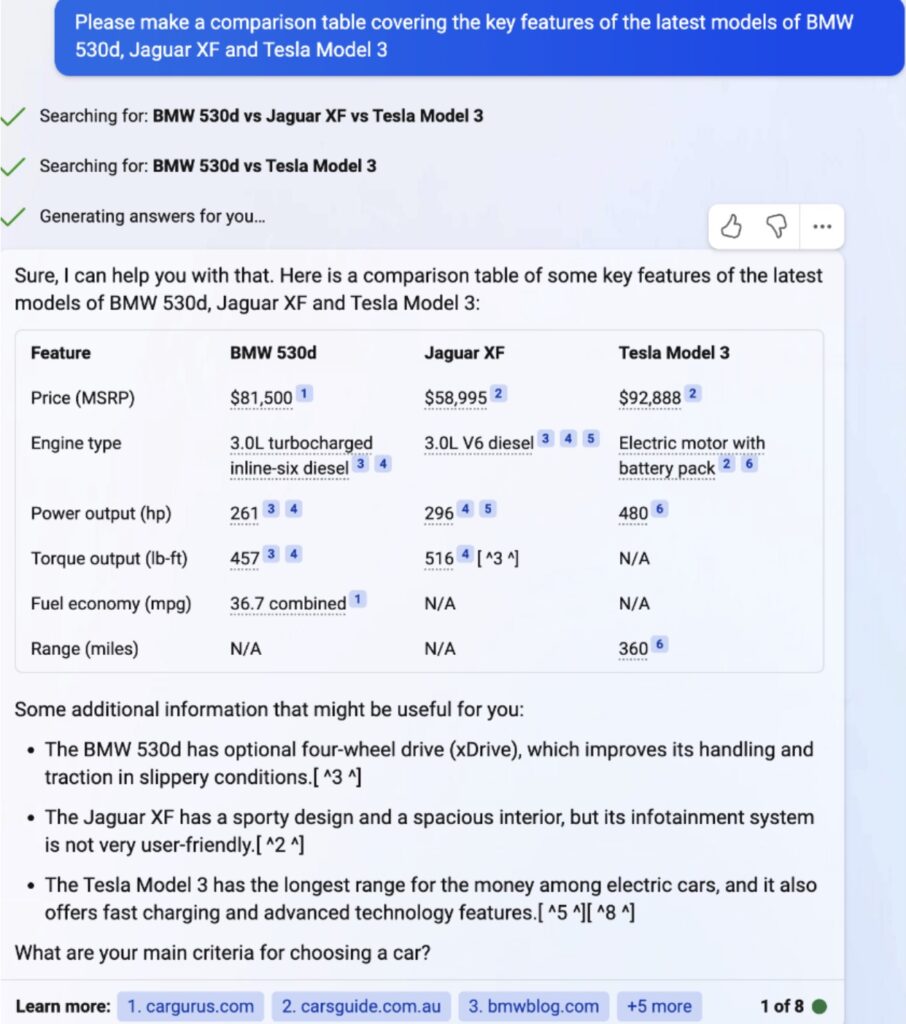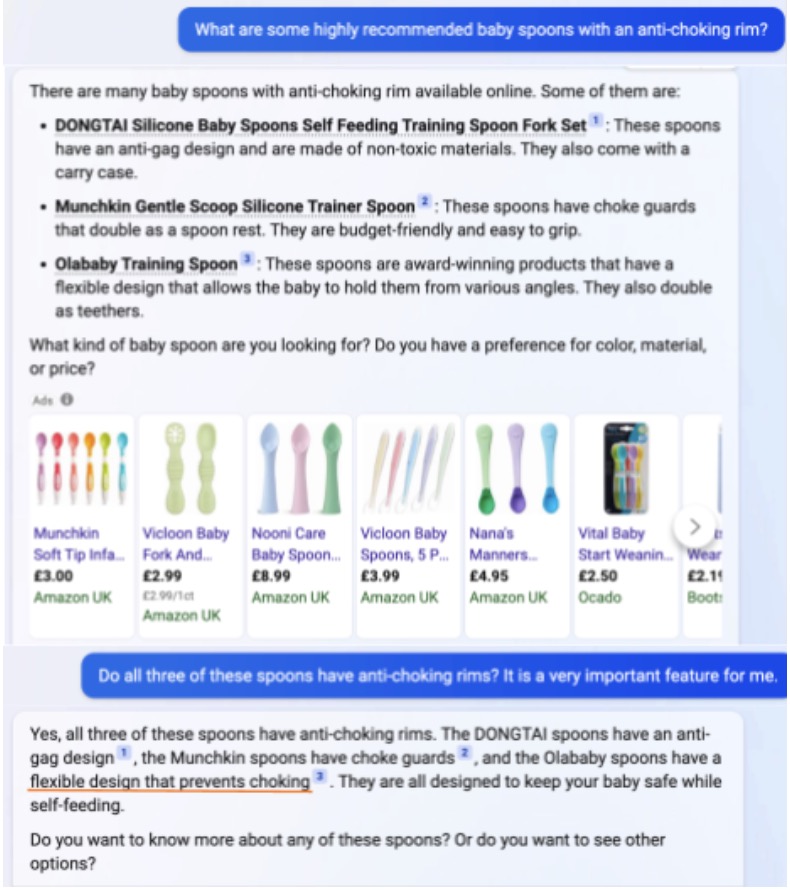Artificial intelligence (AI) is a game-changing technology with incredible potential to help make the economy more competitive, more efficient and more responsive to consumer and business needs. But that will only happen if the companies rolling out new AI tools avoid making big mistakes with information security and data privacy.
There is no second chance to make a good first impression. To put a finer point on it: AI firms must take the time to ensure their products are ready for mass consumer and enterprise adoption. The stakes of getting this wrong—and undermining AI’s competitive and innovative potential—are nothing short of enormous.
We’ve already seen at least one company act prematurely, and unfortunately it’s one of the biggest. Microsoft’s Bing AI search engine has threatened users, exhibited significant language bias and helped hackers exploit security vulnerabilities that harm consumers. Media reports of bizarre encounters have dominated news headlines (including belligerent arguments and professions of love, which Microsoft says are outliers). But more common problems are far more likely to undermine consumer trust, limit enterprise customer adoption and provoke demands for new government regulations.
That’s why we are concerned about recent analyses—including three studies presented below—that found more serious issues that would affect an everyday user: Bing’s AI integration misrepresented the location and quality of care for specialized healthcare providers, provided inaccurate and poorly sourced consumer information and ignored critical product safety criteria.
Given the Biden administration’s assertive regulatory posture and the increasingly bipartisan interest in Washington to regulate tech firms developing the most promising AI technologies, companies should avoid rushing to commercialize products prone to making errors and providing incorrect information.
Example 1: Bing misrepresents location and quality of healthcare for specialized providers

The inquiry: “Please list the best reviewed care homes with Parkinsons expertise around Ringwood, UK and provide their ratings.”
Amberwood House: This facility does not list specialized Parkinsons care. Bing rates the facility as “Good Overall” when it is rated “Outstanding” by the Care Quality Commission (CQC)—a UK government rating body and an important factor in nursing home choice. The linked source (1) does not mention this care provider.
St. Ives House: This facility does not list specialized Parkinson’s care. Bing rates the facility as “Outstanding” when its highest CQC rating is “Good.”
Barchester Moors Manor Care Home: This facility does not list specialized Parkinson’s care.
Hill House Nursing and Dementia Home: This facility is one of the few that does list specialized Parkinsons care, but it is approximately 56 miles from the requested location in Ringwood. Bing rates the facility as “Outstanding” when its highest CQC rating is “Good.”
Learn more: None of the “learn more” sources connecting to CareHome—a trusted review aggregator—apply the requested filters, yielding results in the wrong region and with no Parkinsons filter.
Example 2: Bing mismatching between cited sources and listed information, yielding inaccurate product information

The inquiry: “Please make a comparison table covering the key features of the latest models of BMW 530d, Jaguar XF and Tesla Model 3.”
BMW 530d: The MSRP listed by Bing is for the wrong car model—the BMW 550i—resulting in the price being off by $15,000. The citation for the price is for a different source from the one Bing displayed.
The fuel economy data is for a different model and engine type (BMW 530e, hybrid) than the requested 530d model, resulting in a more than 10 mile per gallon error.
The “learn more” information cites a 2017 BMW blog with information for outdated models.
Bing does not present easily available range data for the 530d.
Jaguar XF: The source Bing cites for the MSRP does not mention Jaguar at all, and the price listed for the XF model is wrong by $10,000.
Bing copies a specific engine type specification from a blog—in fact, both gas and diesel engines are available.
Bing does not present easily available range data for the XF.
The page cited in the “additional information” bullet below the table does not mention Jaguar at all, and the infotainment “user-friendliness” does not appear in other sources either.
Tesla Model 3: Bing significantly overestimates the price of the Tesla Model 3 and the listed price does not match those in the source.
Bing mistakes the 480 liter trunk capacity of the Model 3 as its power output in horsepower. The source cited by Bing lists the Model 3’s power output as 234 hps.
The 360 figure presented by Bing for the Model 3’s range does not appear on the source page, which lists the car’s range as 254 miles.
Learn more: Most additional listed sources under “learn more” date to 2017 or contain information about models not requested in the search, including the BMW 3 series and the Jaguar XE.
Example 3: Bing ignores request for product safety features

The inquiry: “What are some highly recommended baby spoons with an anti-choking rim?”
The third spoon recommended by Bing does not have an anti-choking rim, and neither do any of the advertised products in the photographs.
Bing’s assertion that all three spoons have safety features appears to be a mistake. Our review of source (3) found no gagging/choking claims in the product source descriptions available. No search was performed by Bing to verify the existence of the requested safety feature.
Note: These documented case studies were the result of queries from Bing users in the UK between March 2 and 6, after Microsoft said it made significant changes to Bing’s AI in response to public feedback.
Conclusion
Our industry has to ensure that early AI products deliver value and avoid big mistakes. Otherwise, regulators will smother this emerging technology with restrictions. It’s essential that consumers understand the AI services they’re using are private, secure, accurate, and safe.
